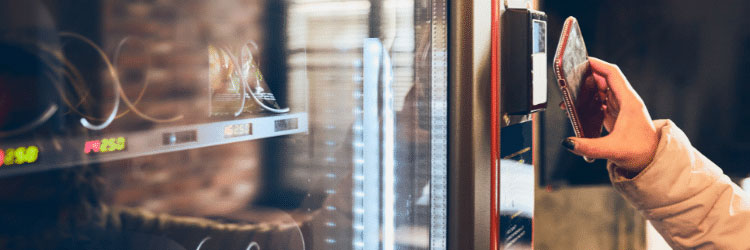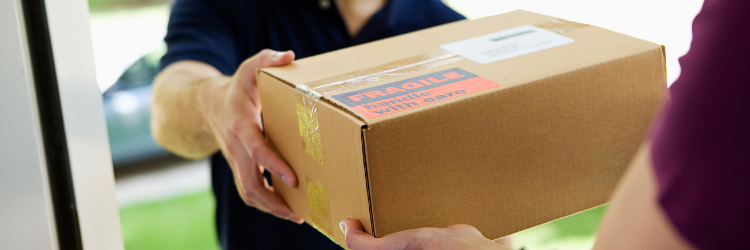
CMO, Wireless Logic
Today’s retailers compete in an ‘everything now’ society where consumers expect rapid, cashless payments, secure transactions and convenient, traceable deliveries. All of which depend on reliable, secure connectivity for digitised services. The findings of Wireless Logic’s recent UK consumer survey reveal opportunities and challenges that cellular connectivity built for the IoT can help retailers address.
Digitisation has changed the way we work and live our lives. Industries have driven and adapted to these changes by automating services, migrating online and making more use of data. Nowhere has change been more apparent than in retail. The COVID-19 pandemic accelerated a raft of consumer behaviour changes that were already in evidence including growing online orders, a rise in cashless payments, and an increase in unattended retail purchases from vending machines.
Wireless Logic set out to understand these changes. Research conducted in April this year with UK respondents aged 16 to 54 years examined point-of-sale (POS) cashless payments, purchasing from vending machines and online ordering and deliveries.
Each of these aspects of the retail experience relies on reliable, secure connectivity, without which retailers may lose orders and revenue; even suffer reputational damage.
Sales are lost when cashless payments can’t be processed
We asked consumers about their payment habits when shopping. It is marked to note that less than 10 per cent said cash is the one method of payment they use most often. Chip and PIN/contactless was the most popular (38%) with PayPal (29%) and Apple Pay (17%) also cited.
Retailers must be equipped to process cashless payments consistently. Over a quarter (28%) of in-store shoppers said they would find another retailer or try again another time if their preferred method of payment was unavailable. At best, that means deferred revenue, at worst revenue that is lost altogether. Online, the situation is even more stark as over a third (36%) would take their business elsewhere or delay their purchase.
To avoid churn, always-on POS connectivity is a hygiene factor for retail so that customers can always pay by their preferred digital method, without delay. That secures revenue and also avoids potential longer-term brand damage – when shopping in-store, 21 per cent of consumers said they would blame the retailer if a card machine was available but not working.
Retailers must also be able to trust that their digital transactions are secure. Consumers do think about this with over half (58%) saying they are concerned about the security of their personal details/payment. This is even higher among males (63%). Over a third (37%) believe it is the retailer’s responsibility to ensure the security of their payment, highlighting the risk of brand damage should there be a security failing.

Vending is a retail opportunity
Vending machines provide an unattended retail solution ideally suited to meet demand for ways to purchase goods with reduced contact.
On average, in the three months preceding the survey, consumers had made a purchase through a vending machine five times in airports; four times in train stations and retail outlets. That demonstrates significant usage, and an appetite for purchasing in this way, with 46 per cent of respondents agreeing there should be more options to purchase goods through vending machines (over half for those aged 16-24).
When asked why, respondents mentioned convenience (53%), accessible locations (45%), friendlier operating hours (33%) and that it shows a retailer is forward thinking and innovative (30%).
Clearly, vending machines are an opportunity for retailers to reach customers out of hours and in other locations, while building their reputation for innovation along the way.
However, when we consider these results alongside consumers’ preferred ways to pay – with less than 10 per cent favouring cash – it is clear that vending machines must meet expectations of cashless payments to prosper.
This is happening. The Automatic Vending Association (AVA) revealed an 11 per cent year-on-year increase in cashless vending technology in its 2020 census of UK operators, and more than double the purchase value of cashless payments during the pandemic period.
Vending machines, like retail POS terminals, depend on resilient connectivity to take cashless payments. Without this, there is a risk that revenue will be lost, and retailers will miss out on the vending growth opportunity should customers be unable to pay in their preferred way.

The delivery experience is so important
In the three months preceding the survey, more than one in ten (12%) of respondents had used a locker to take delivery of ordered goods. What is perhaps surprising is that seven per cent had used robot/drone delivery, reflecting a movement towards completely automated deliveries.
Secure lockers offer a convenient way for online shoppers to receive their items. They can be located at retailers’ own sites or pick-up point locations including train stations.
They, like the delivery robots/drones, must have 24/7 connections to exchange data on delivered and collected items and to verify customer information. If they lose service, customers will be frustrated when trying to retrieve their goods and may reconsider using those services in the future.
Customers want to be kept informed when they are expecting a delivery. Tracking information was deemed important by over 80 per cent of our survey respondents across all purchase categories with electronics (87%), and white goods and food/perishables (86%) attracting the most responses.
Overall, the delivery experience is important. Half of respondents would be wary of making future purchases from a company if it was poor (no tracking information/goods left in an unsuitable place/missed delivery time etc.) This rises to 55 per cent among the 25 to 34 age demographic.
Slick, seamless and traceable deliveries depend on the rapid exchange of up-to-date information. Communication failures could result in failed deliveries or customers chasing updates. Such outcomes make for bad experiences, potentially lost revenue, and even long-term brand damage.

Providing ‘everything now’ through reliable cellular connectivity
The growth of online shopping, cashless payments and unattended retail, coupled with high consumer expectations around deliveries is driving a growing need for resilient and secure online connections.
All the scenarios we explored in our survey depend on reliable connectivity to function. We live in an ‘everything now’ society where consumers expect to be able to buy and take delivery of goods quickly and conveniently whilst knowing that their personal data is kept secure.
This puts pressure on retailers to connect their services through a secure and reliable IoT connectivity platform. By bringing resilience to their IoT applications, retailers can delight customers and compete in a crowded marketplace.
An ultra-high availability SIM, which is a multi-network roaming SIM, provides the resilience retailers need. Its on-SIM application continuously monitors network connectivity and automatically switches SIM profile to connect to an alternate network if connectivity fails.
This mitigates the risk of network downtime for retailers dependent on always-on connectivity to take payments, keep customers informed of their orders and facilitate delivery processes. Being able to automate deployments at scale, retailers need zero-touch provisioning and auto-enrolment through cloud service providers such as AWS and Google Cloud but this will require enhanced security when it comes to customer data. Having Virtual Private Network (VPN) infrastructures and Private APNs help to protect devices and data, reducing any risk of fraudulent activity which could lead to reputational damage for the retailer.
The Wireless Logic IoT solution with built-in resilience
Wireless Logic’s Ultra High Availability SIM and Cloud Secure solutions provides the resilience, security flexibility and automation retailers need to meet consumer expectations of their digital services. To find out more, take a look at Conexa, Wireless Logic’s network for ‘things’ or contact us to discuss.


